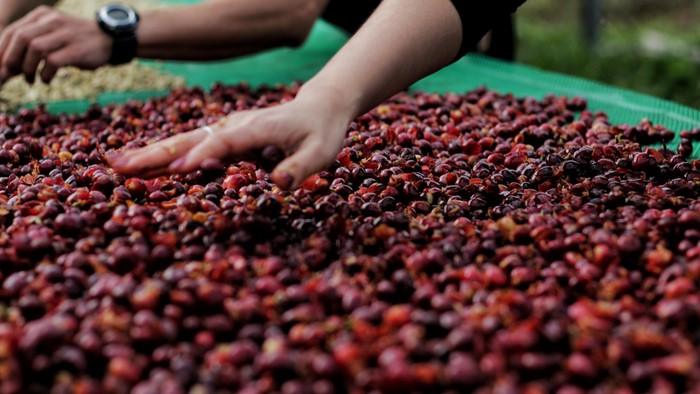
Turning wastewater from coffee production into electricity
Wastewater from coffee processing is harmful to the environment, as it contains substances that take a very long time to degrade. This is a particular problem in coffee-producing countries.
It can be very difficult for the farmers to afford the large-scale water treatment systems needed to process the coffee waste, so it ends up in local watercourses, which become contaminated.
Scientists identified a way to process the waste differently by feeding it to a community of electrogenic microbes. These bacteria break down more of the contaminants, and in the process, they produce electricity. Although they don't fully clean the water, they enable the reuse of much more water and reduce contaminants by around 30%.
As well as reducing the amount of water needed and cleaning up the wastewater, reducing pollution and benefiting ecosystems, the bacterial process can also be turned into a low-cost microbial fuel cell to generate electricity, giving coffee producers a sustainable, renewable source of power.
The lab trials involved expensive materials such as membranes, casing and electrodes, but they have identified cheap alternative materials easy to find locally. They found that readily available clay and ceramics could replace the membrane, and they sourced plant-based materials locally to make the casing.
Coffee has a variety of biologically active compounds, which present interesting opportunities if they can be extracted. They're also researching what can be done with other forms of agricultural waste, like a banana peel.
 English
English Arabic
Arabic


